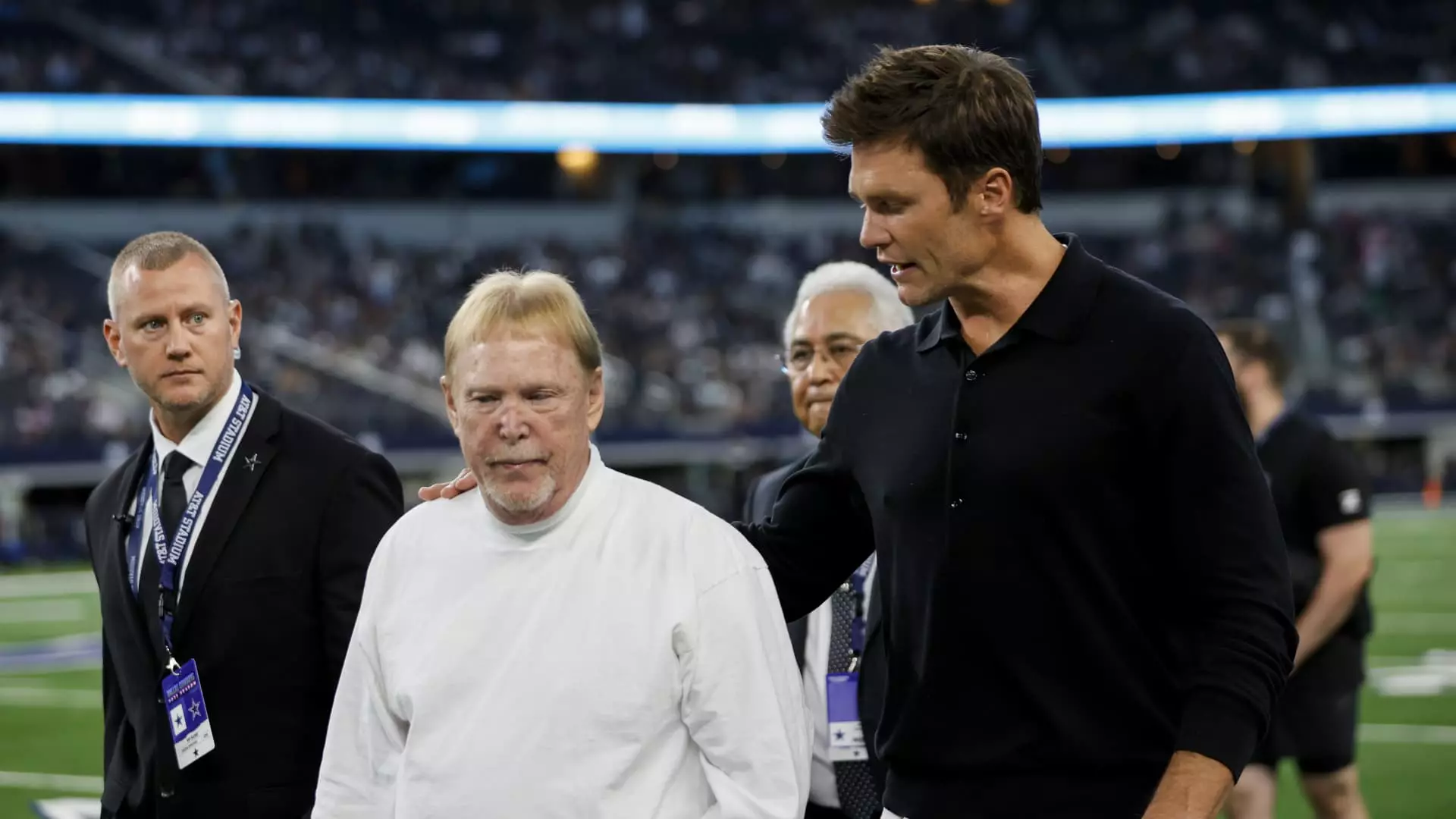In a landmark decision that underscores the evolving landscape of sports ownership, NFL owners recently ratified Tom Brady’s role as a minority owner of the Las Vegas Raiders. The seven-time Super Bowl champion, together with his business associate Tom Wagner, founder of Knighthead Capital, secured a 10% equity stake in the franchise. This investment comes at a considerable valuation of $3.5 billion, translating into a capital commitment of approximately $220 million. Alongside this investment, they are also responsible for a 10% “flip tax,” a unique financial obligation that contributes to the revenues of the other 31 league owners.
What’s particularly compelling about Brady’s entry is the context of the franchise’s financial landscape. Richard Seymour, a former NFL player, has also made headlines by acquiring a minor stake in the Raiders, indicating a trend where ex-players seek ownership roles in a league where they once competed, albeit on a much smaller scale.
The value at which Brady and Wagner are entering the ownership is intriguing, especially when considered against a broader financial backdrop. CNBC’s 2024 NFL Team Valuations suggest that the Raiders could be worth up to $7.8 billion, which would imply that Brady’s entry was obtained at over a 50% discount. Standard practice states that limited partners, who typically lack a voice in operational decisions, would face discounts of only 20%-25%. This discrepancy raises questions not just about the valuation but also about the dynamics involved in Brady’s negotiations.
Since relocating from Oakland to Las Vegas in 2020, the Raiders’ financial fortunes have soared, positioning them among the top tier of NFL franchises. Their revenues climbed to $780 million in 2023, ranking as the third highest league-wide. Such growth reflects the enhanced fan engagement and market appeal that Las Vegas offers, prompting a new era of profitability.
A significant factor in the Raiders’ astonishing financial gain has been the Allegiant Stadium. While its seating capacity is one of the smallest among NFL venues, the stadium compensates by charging the highest ticket prices in the league. During the previous season, the average ticket price hit a remarkable $169, showcasing the team’s ability to capitalize on its location and the growing popularity of the NFL in Las Vegas.
Additionally, Allegiant Stadium’s utilization extends beyond football games. The venue hosts an assortment of non-NFL events, which has bolstered the Raider’s revenue streams. In 2023 alone, the franchise earned over $50 million from concerts and various college sports events, illustrating the multiple revenue pathways the team has effectively harnessed.
Brady’s foray into team ownership brings forth unique challenges and stipulations. Despite his prominent status, he faces restrictions that could limit his influence and visibility with the Raiders. While he has the opportunity to broadcast games involving the team, he won’t be allowed to partake in production meetings or access team facilities. This structural limitation may impact his ability to blend his dual roles as an owner and a broadcaster seamlessly.
Brady’s ownership also comes after his lucrative broadcasting deal with Fox Sports, worth a staggering $375 million over ten years. Maintaining a clear delineation between his broadcasting duties and ownership responsibilities will be paramount for Brady as he navigates this new frontier.
Brady’s successful bid for a stake in the Raiders marks him as just the third former NFL player to transition into a team ownership role, setting a potential precedent for other retired athletes. This shift could inspire more former players to explore ownership opportunities, further intertwining athletic careers with business ventures in professional sports.
Looking ahead, Brady’s presence in the ownership landscape will likely reinforce the Raiders’ market appeal while also providing valuable insights from one of the game’s greatest players. As the franchise continues to grow and thrive in Las Vegas, the implications of Brady’s investment could resonate throughout the league, influencing the future dynamics of NFL ownership and the strategic shifts within sports at large. With all these factors at play, the journey of Tom Brady as a team owner is just beginning and promises to be an exciting chapter in both his career and the Raiders’ story.

